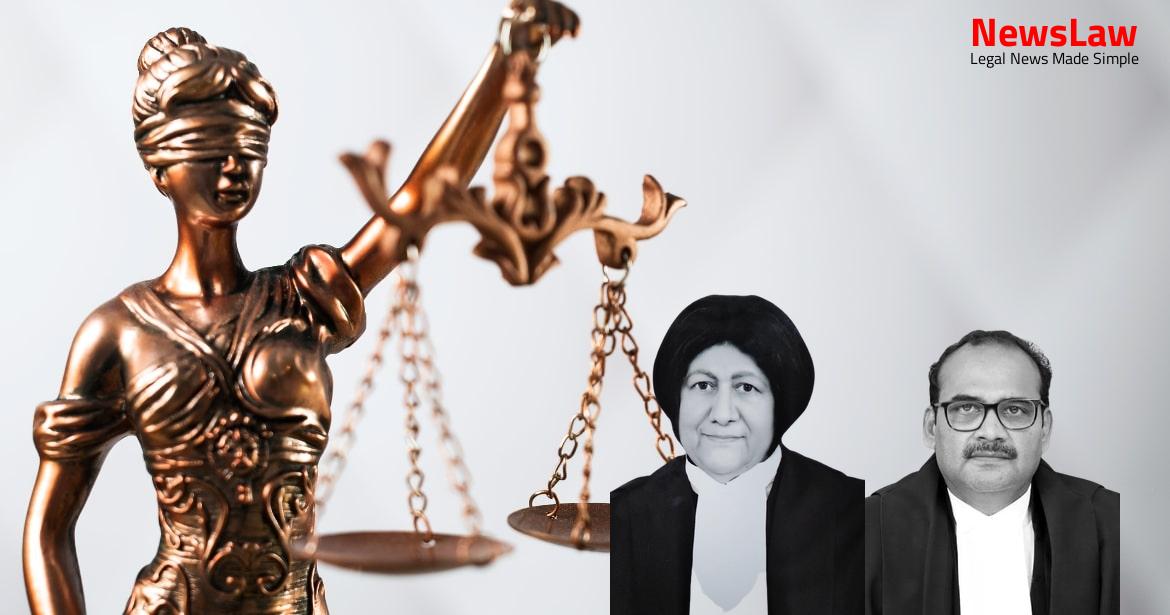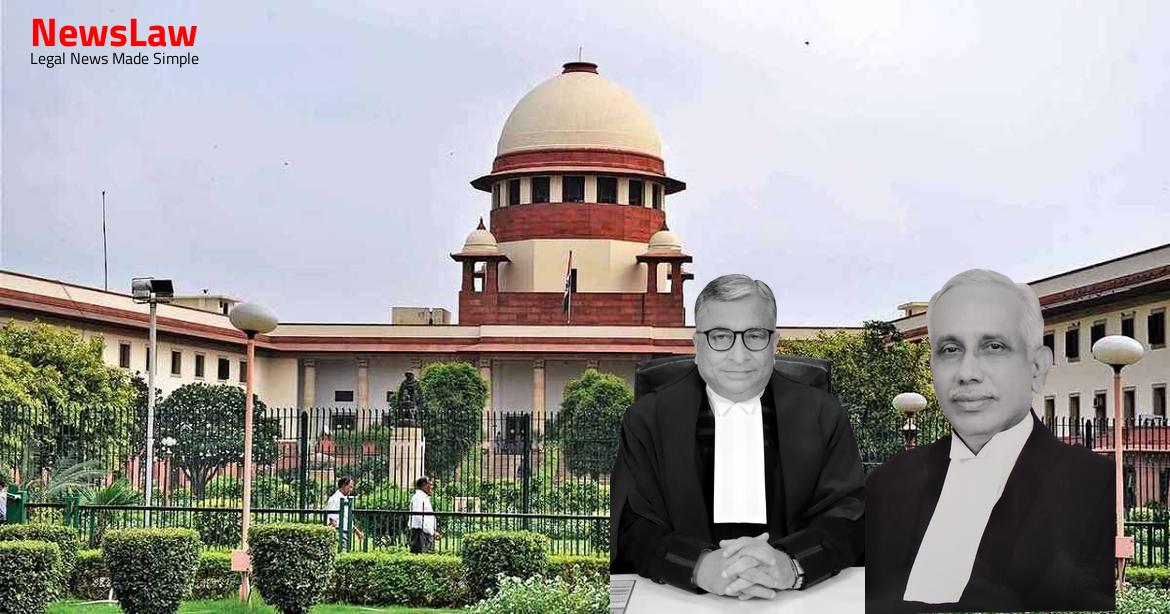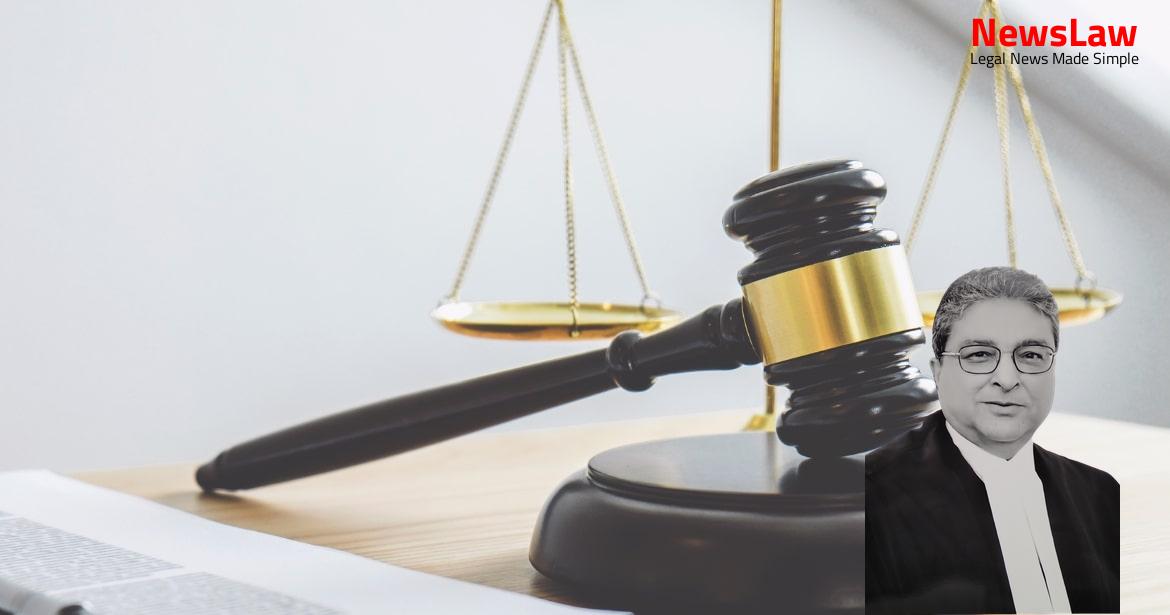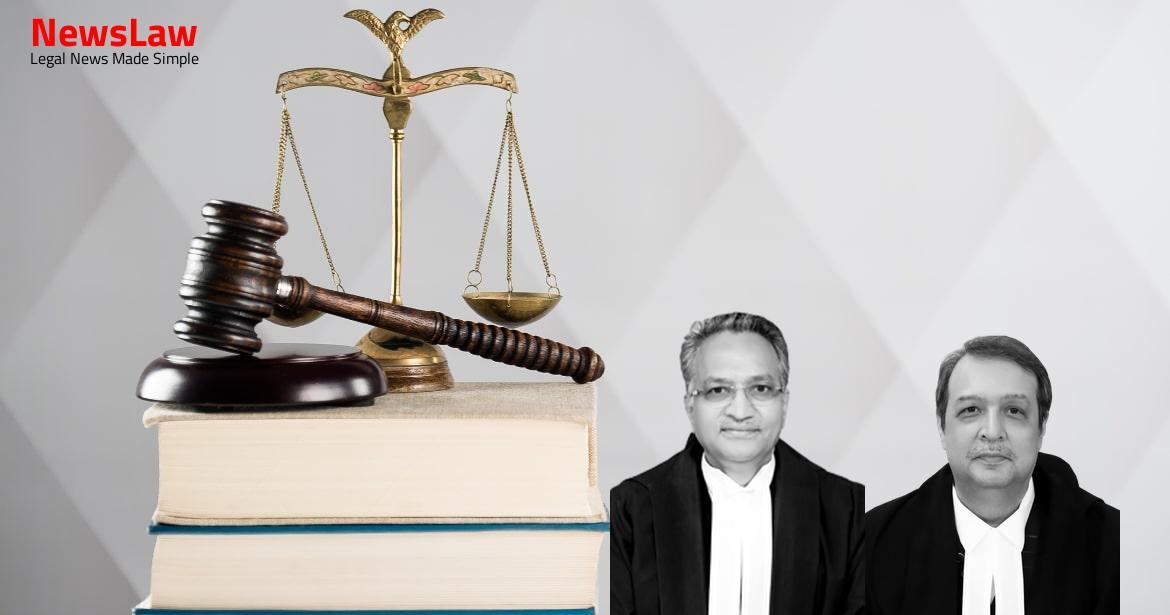Explore the in-depth legal analysis conducted by the court in a recent case involving the quashing of criminal proceedings. The court’s meticulous examination of the legal aspects surrounding the case sheds light on the complexities of the law and its application in similar scenarios. Stay tuned for a detailed insight into the court’s reasoning and decision-making process.
Facts
- Rajan Kumar (since deceased) executed sale deeds in favor of the Appellant and family members based on a Power of Attorney.
- Mutation of property in favor of the Appellant was done despite objections from Smt. Beena Srivastava.
- Original Suit filed by Smt. Beena Srivastava for cancellation of Power of Attorney and sale deeds was dismissed under Order VII Rule 11.
- High Court order challenged, leading to the filing of a FIR.
- Original Suit No. 608 of 2016 for permanent injunction was instituted by the Appellant.
- Application under Section 482 of Cr.P.C. was filed to quash proceedings in Crime Case No. 5973/2020.
- Several appeals and contempt applications filed by Beena Srivastava and others were dismissed by various orders.
- Allegations and legal proceedings involving the Appellant, Beena Srivastava, and others continued with multiple petitions and appeals.
- The Appellant claims that Arjun Dev and his wife Bela Rani were recorded as Bhumidhar of Plot No 971M area 918 Aire
- They had executed a registered Power of Attorney in favor of the Applicant No.1 Rajan Kumar, who has passed away
- The Appellant argues that the case lodged against them was false and baseless
- They contend that the Charge-Sheet was submitted without proper investigation and evidence
- The Appellant asserts that no prima facie case was disclosed against them
Also Read: Land Dispute: Court’s Analysis on Condonation of Delay
Arguments
- The charge-sheet speaks for itself and cannot be improved by adducing documents, filing affidavit, or making oral submissions.
- Certain judgments of the Court were cited by the Appellant’s counsel, including cases like Mohd. Ibrahim v. State of Bihar, Paramjeet Batra v. State of Uttarakhand, Uma Shankar Gopalika v. State of Bihar & Anr., Vesa Holdings Private Limited v. State of Kerala & Ors., Robert John D’Souza v. Stephen V. Gomes & Anr., and Kapil Agarwal v. Sanjay Sharma & Ors.
- In Mohd. Ibrahim case, the FIR was challenged in the High Court of Judicature at Allahabad under Article 226 of the Constitution of India, where it was claimed that the deed had been forged or fabricated without thorough examination of the executant, Bela Rani.
- Mr. Agarwal argued that the order of the High Court disposing of the Writ Petition had not been challenged by the Appellants and had become final.
- The Appellant cannot reopen the same issues by filing an application under Section 482 of the Cr.P.C.
- The High Court had mentioned the wide scope of interference under Section 482 of the Cr.P.C. in the impugned judgment.
- The jurisdiction under Section 482 is not granted easily, and it is exercised cautiously in exceptional cases.
- Interference with an FIR is usually restricted, and courts do not interfere under Article 226 of the Constitution of India unless it’s exceptional.
Also Read: Legal Analysis on Waiving Waiting Period in Mutual Divorce Cases
Analysis
- The High Court order dated 5 October, 2017, involved Rajan Kumar as the executant of the sale deed and Power of Attorney in question.
- The FIR lacks disclosure of any criminal offense involving the Appellant.
- The charge sheet is vague and does not provide clarity on the Appellant’s involvement in any criminal activity.
- Civil disputes between the parties are not relevant to the criminal offense aspect of the case.
- The FIR does not indicate any criminal offense by the Appellant and should be judged by the High Court based on the nature of the allegations.
- The jurisdiction under Section 482 of the Cr.P.C. should be sparingly used to prevent abuse of court process or to achieve justice.
- The possibility of fraudulent, fabricated, or forged deeds is distinct from the issue of Bela Rani’s title or the validity of the Power of Attorney.
- The lack of examination of Bela Rani by investigating authorities raises concerns about the case’s handling.
- The mutation of the property in the Appellant’s name is noted, although mutation records do not signify title ownership.
- The involvement of deceased Rajan Kumar further complicates the case, particularly post his demise.
- The absence of submitted Police reports influenced the High Court’s decision not to intervene initially.
- The potential existence of forged documents, including the sale deed or Power of Attorney, adds complexity to the case.
- Paramjeet Batra case stated the remedy for a civil dispute lies in civil court.
- Robert John D’Souza case reiterated that the dispute was purely civil in nature.
- Vesa Holdings Private Limited case highlighted the civil nature of the dispute.
- Kapil Agarwal case observed that Section 482 aims to prevent criminal proceedings from becoming tools of harassment.
- Uma Shankar Gopalika case found the complaint did not disclose any criminal offense, including sections 420 or 120B of the IPC.
- The complaint in question involves civil transactions but is given a criminal texture.
- No specific mention of criminal involvement of witnesses in the FIR except a vague claim of collusion.
- The High Court must determine if a civil dispute has been falsely portrayed as a criminal offense.
- Citing the precedent in Paramjeet Batra, the High Court should quash criminal proceedings if no criminal offense is evident.
- The case may involve both civil wrong and criminal offense, requiring careful consideration.
- Availability of civil remedies does not automatically warrant the dismissal of criminal proceedings.
- No criminal offense is established in the FIR and Charge-Sheet concerning the Appellant in question.
- One of the accused, Rajan Kumar, has passed away.
Also Read: Limitation Period Extension in IBC Case
Decision
- Leave granted.
- The appeal is allowed.
- Crime Case No. 5973 of 2020 is set aside for these Appellants.
- The impugned judgment and order of the High Court are set aside.
- Proceedings in Crime Case No. 5973/2020 are quashed as against the Appellant.
- Issues involved in this appeal are identical to the issues involved in Appeal No. 932 of 2021.
Case Title: RANDHEER SINGH Vs. THE STATE OF U.P. (2021 INSC 440)
Case Number: Crl.A. No.-000932-000932 / 2021



